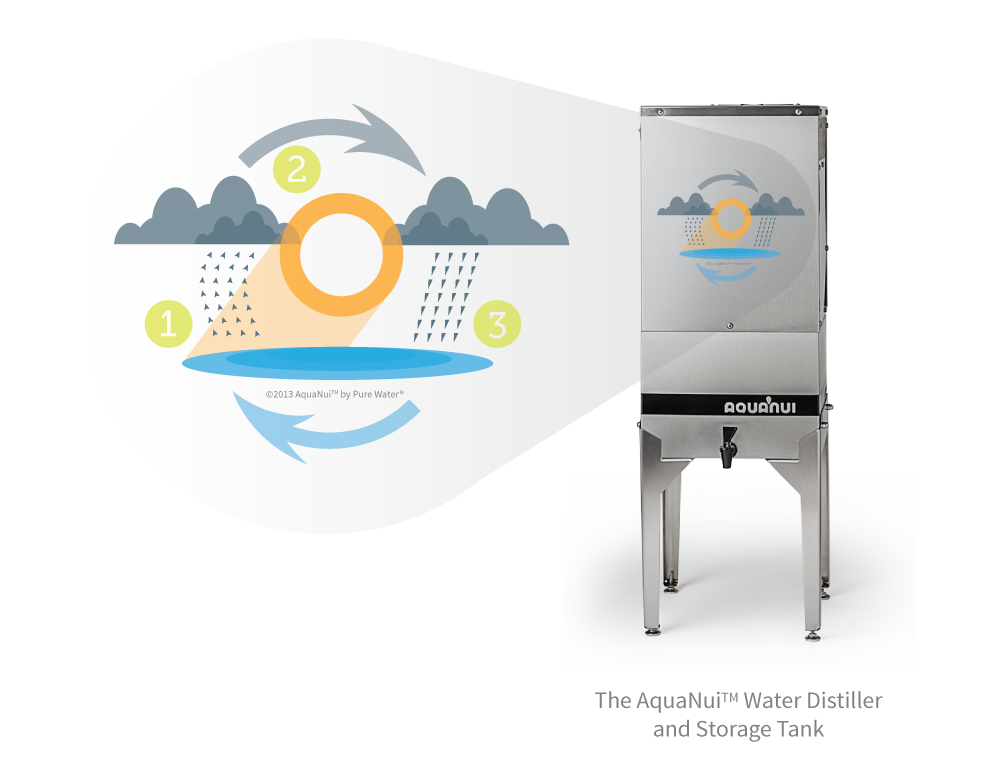Pure water is one of the most vital, yet overlooked, elements for staying healthy.
This is especially true right now in the middle of the COVID-19 Pandemic. One of the best things you can do is keep yourself and your loved ones in peak physical health. Keep your immune system strong so you can effectively fight the virus if you happen to contract it.
Now is not the time to be fighting multiple illnesses or dealing with toxins. This is especially true if you have diabetes or other health problems.
Drinking water is essential for your health. Yet most people misunderstand water purity and underestimate its importance to their health. Pure, distilled water is key.
Contaminants in the USA and How They Affect Us
Lead in Drinking Water
One example that should hit home for most Americans is the lead water crisis in Flint, MI. It’s now been 6 years since the crisis began. So, we must have solved the problem by now, right?
Wrong.
Although Flint is working on remedying the situation, it’s a long work in progress. In fact, Flint, MI is suspending its lead pipe replacement in the wake of the COVID-19 pandemic. This means that people are going to be waiting even longer for lead-free water.
Lead is a very dangerous heavy metal because it builds up in your body, can cause serious health problems, and can negatively impact your immune system. Learn more about the effects of lead here.
The EPA sets a maximum level of lead at 15 parts per billion (ppb). At its highest, the lead level in Flint tap water was 158 ppb – more than 10x the limit.
There is NO safe level of lead exposure. Even at small doses, lead poses a health threat, especially for pregnant women, infants and young children. The fact is that hundreds of kids have permanent brain damage because of being exposed to lead in Flint.
Just two months after the Flint, MI crisis hit the news, USA TODAY published an investigation that “identified almost 2,000 additional water systems spanning all 50 states where testing has shown excessive levels of lead contamination over the past four years.”
Since then, there have been a number of other reports about how big of a problem lead is. A CNN article reported that, “More than 5,300 water systems in America are in violation of the EPA’s lead and copper rule.” A 2019 article states as many as 22 million Americans may get their tap water through lead service lines… and those lines might not be replaced for over 30 years.
You need your immune system to be in tip-top shape in case of contracting the coronavirus. You do not want to be consuming water that contains lead right now. Or any harmful contaminant for that matter.
The Problem Goes Far Beyond Lead…
In 2014, over 10,000 gallons of a chemical called MCHM leaked from a neglected storage tank into West Virginia’s Elk River, just upstream from Charleston’s water supply. As a result, 300,000 residents were told not to drink, cook with, bathe or even touch the water.
This West Virginia chemical spill was a huge media event and it was the top story in the news for more than a week. So this type of chemical spill must be a rare event, right?
Not in the slightest.
- In 2015, we saw events like an abandoned Colorado mine spill that contaminated rivers with tons of metals.
- In 2016, we saw disasters like the one in Atkinson, Kansas where giant plumes of chemicals infiltrated our airways and then settled into our water.
- In 2017, we saw dangerous accidents like the massive spill in Portage, Indiana that closed beaches.
- In 2018, we saw toxic contaminants released into our environment like this frightening spill in New York.
- In 2019, we saw spills that sent dozens of unsuspecting people to the hospital and kept others trapped in their homes like this one North of Chicago.
All of these were big stories in the news, but hundreds of others occurred too. You can find out about reported spills in your area on the EPA website, but keep in mind that contamination travels everywhere our water does.
Sometimes the threats aren’t from major spills. Sometimes the threats come from simple, everyday things that we don’t suspect. For example:
- In 2018, we started understanding the threat of glyphosate in our food and water.
- In 2019, we learned of the widespread PFOA and PFAS contamination.
These are chemicals we have been using for decades without properly understanding their detriments and how easy it is for them to contaminate our water.
After the WV chemical spill, BusinessWeek reported that there were over 3,885 similar chemical spills in the U.S. in 2013! That equates to more than 10 per day in the USA.
Pause for a moment and let that sink in…
Now, let’s take it a step further. This number of 3,885 chemical spills in 2013 is based solely on self-reports of accidents from 76 publicly traded companies. So how many unreported chemical spills were there? No one knows.
Fact: We Live In A Toxic World
The evidence is staggering.
If these toxins are in your water, they can negatively affect your health and your immune system.
It’s important to remember that when the government says that your tap water is “safe”, they are using the legal definition of the word “safe”, not the English language definition of the word “safe”.
An article by the New York Times says, “Only 91 contaminants are regulated by the Safe Drinking Water Act, yet more than 60,000 chemicals are used within the United States, according to Environmental Protection Agency estimates. Government and independent scientists have scrutinized thousands of those chemicals in recent decades, and identified hundreds associated with a risk of cancer and other diseases at small concentrations in drinking water, according to an analysis of government records by The New York Times.”
Curious about what’s in your water? Learn more about tap water contaminants being monitored by the Environmental Working Group here.
The Impact of COVID-19
Currently, there is no evidence to suggest that COVID-19 is transmitted via the water supply because standard sanitation practices kill the virus. (Studies are continuing to monitor this though, as fecal matter in waste water has been found with coronavirus.)
However, the quality of your water supply is still important.
First, it’s imperative that you stay as healthy as possible right now. It comes down to this simple question: “Do you think you have a better chance of being healthy and keeping your immune system in top shape if you avoid consuming chemicals and toxins?”
If your answer is yes, then you should drink only vapor distilled pure water. NOTE: This is true all the time, not just during the current pandemic.
Second, we don’t know the extent of isolation and lock-down COVID-19 will cause, nor do we know how it will affect hoarding of bottled water. It’s important to be in control of your own supply of pure distilled water, so you can adapt to whatever situation we find ourselves in.
Control Your Own Water Supply
The single most important point to understand is this: YOU have the power to ensure that your family’s consumable water is free from harmful contaminants.
The single best way to ensure the purity of your drinking water is to use a high-quality home water distiller because it’s the only way to be in complete control of your water supply. It also protects you from shortages of distilled water at the store due to the COVID-19 pandemic.
Distillation is recognized as the gold standard for water purification by scientists, doctors, and FEMA and the Red Cross. A home water distiller offers the highest level of protection against the broadest spectrum of possible contaminants, and the purity is consistent over time.
Distillation mirrors water’s built-in purification method of changing from a liquid to a vapor and then back to liquid. Here’s how distillation works: 
Learn more about distillation here.
An Important Note:
An important thing to understand is that it’s not just about healthy drinking water, but rather everything you consume should be pure. This means that you should also use distilled water for baby formula, soups, coffee, tea, pasta, rice, protein drinks, and especially baby formula should be made with pure water.
Do you already have a water distiller? Well done! But if you or someone you know needs one, we’re here to help.
Questions about what size of water distiller would meet your needs? Please email us at info@myaquanui.com or call us at 1.800.875.5915.
Please note that right now distillers are in very high demand because of COVID-19. We are making them as fast as possible (in the USA), but there may be a delay before you receive your order. Thank you for your patience!
